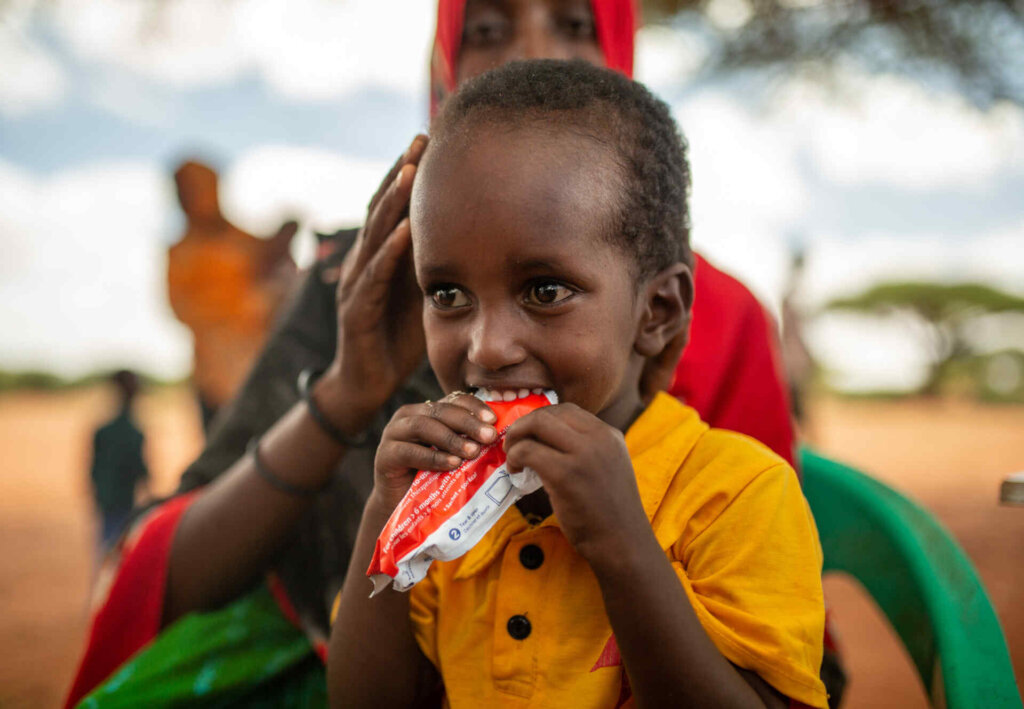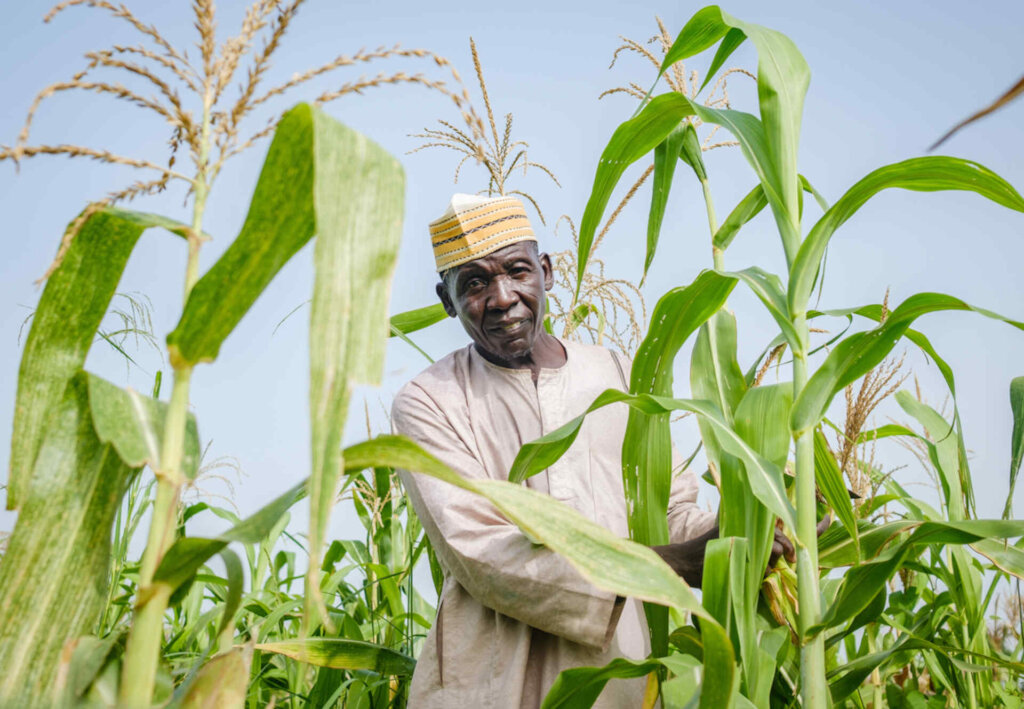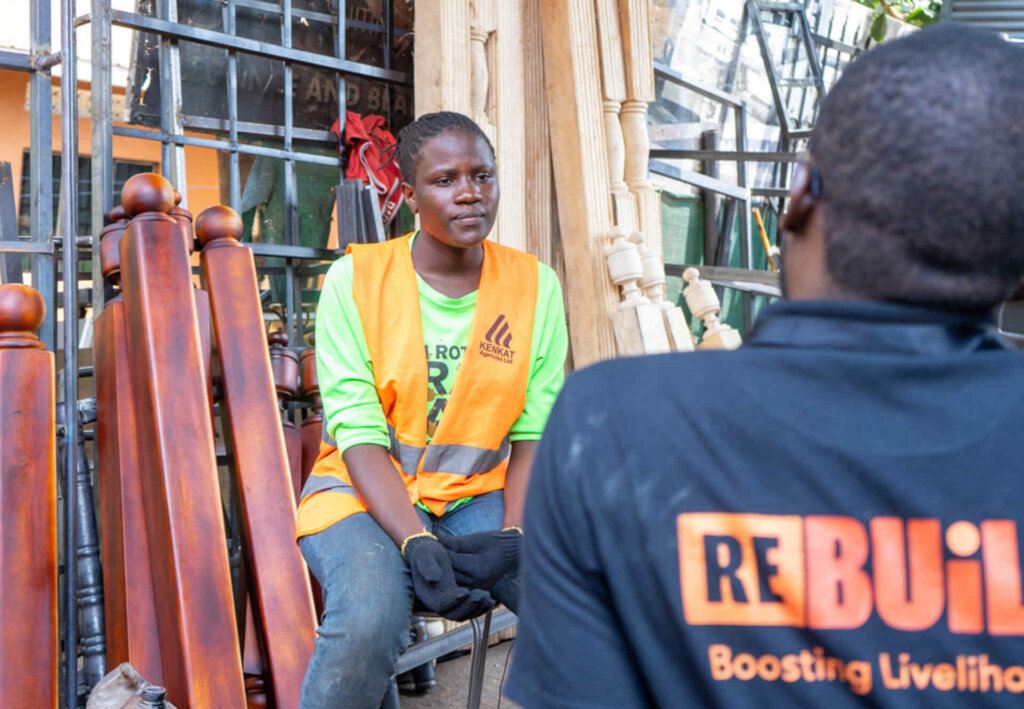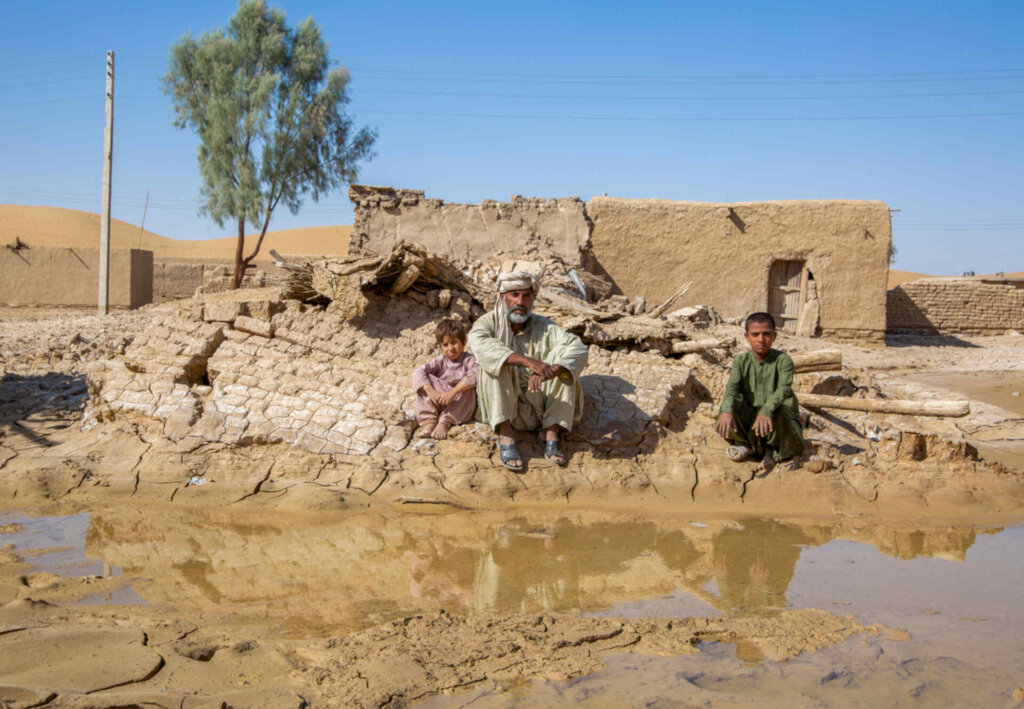By Savannah Paolillo | Donor Services
Did you know that nearly half of the population who are facing extreme poverty live in just 16 climate-vulnerable, conflict-affected countries? These nations are already struggling with the harsh realities of the climate crisis, with more frequent and intense natural disasters wreaking havoc on people’s lives. People are losing their homes and incomes, and conflicts are intensified. These countries, however, are responsible for less than 3% of global greenhouse emissions. It is more necessary than ever for the world to take action on climate change.
At the IRC, supporting vulnerable communities in the face of climate crises is one of our primary objectives. We work with a clear understanding of the specific needs of local communities and focus on climate adaptation, resilience, and crisis response.
Supporting sustainable livelihoods in Kenya & Uganda
The IRC’s Re:BUiLD Program which the IKEA Foundation supports, is working to develop skills and improve access to employment in climate-resilient jobs in textile and e-waste management in Kenya and Uganda. This initiative aims to empower young people and contribute to the increase in demand for and availability of green products and services in Kampala, Uganda and Nairobi, Kenya.
Rahma, 24, is one of the IRC’s Re:BUiLD clients placed for on-the-job learning at KenKat welding workshop located in Kampala, Uganda. Before the apprenticeship, Rahma had studied welding at the vocational institute but could not find a workshop. "Many workshops do not trust women to do the job,” she explains. After three months of the apprenticeship, Rahma is now employed full-time at KenKat.
Revolutionizing malnutrition treatment
In East Africa, three years of catastrophic drought have been followed by devastating floods, affecting tens of millions and leading to unprecedented rates of acute malnutrition. Crisis-level food insecurity also threatens other areas, including Africa's Sahel region and Afghanistan.
For children, being malnourished can lead to a range of health problems and can be fatal. The IRC is leading the fight against child malnutrition and has developed a simplified and more cost-effective combined protocol that offers a more comprehensive treatment.
The simplified protocol empowers community health workers or parents in remote areas to assess and monitor children for malnutrition at home, enabling more children to be reached with life-saving care. The approach is already in action in the Central African Republic, Chad, Kenya, Mali, Nigeria, Somalia, and South Sudan. “We are trying to reach mothers and children who are facing malnutrition so that we can provide them with health services and educational training,” says Agha, an IRC community health care worker in Afghanistan. “We want to raise awareness and guide them to care for their own health and prevent malnutrition in the future.”
Beyond East Africa
Developing climate-resilient seeds in Syria
We are focusing on a new and promising area of climate innovation known as seed security. Our goal is to empower farmers to adapt to climate change by providing them with high-quality seeds that are resilient to its effects. Starting with a 12-month pilot in Syria, we are working directly with Syrian farmers to test and identify seeds most suitable to a changing climate.
Our project focuses on promoting women's participation in the agricultural sector, as well as multiplying and scaling the use of higher-yielding and climate-resilient seeds. We are currently expanding this project to Pakistan, Niger, and South Sudan in order to increase the efficiency and sustainability of farming practices in these regions.
Adapting to flooding in northeast Nigeria
Nigeria is extremely vulnerable to the impacts of climate change, experiencing a very high frequency of climate-related disasters. In 2012, the country witnessed one of the worst floods in a century, resulting in the displacement of over 2.3 million people, 363 deaths, and causing over 16 million people to lose their source of income. The IRC has created a flood-risk monitoring platform for Nigeria's flood-prone northeastern region. The platform uses indigenous knowledge, hydrological and meteorological data, and satellite information to set forecast-based thresholds for triggering anticipatory cash payments.
In the town of Dansina-Hausa, climate change has profoundly affected local farmers like 51-year-old Shaibu. The corn farms he relied on to support his family and earn a living have been damaged due to increasingly frequent droughts and floods. Recently, he’s started utilizing the IRC's early warning messages to safeguard his farm before flooding hits and to assist others in his community in doing the same. Additionally, Shaibu received anticipatory cash to purchase a generator-driven water pump, which allowed him to farm during droughts, and a motorcycle to travel to and from his farm more efficiently.
Responding to flooding in Libya
On September 10th 2023, unprecedented floods struck Libya when Mediterranean Storm Daniel made landfall, displacing over 40,000 people and sweeping away entire neighborhoods. Years of conflict in Libya left vulnerable communities ill-prepared for climate events, with inadequate infrastructure and limited access to essential services. “It is often the most vulnerable people— at risk of their homes, livelihoods and health—who are on the frontlines of the climate crisis,” says IRC Libya country director Elie.
Since the onset of the crisis, our emergency teams have worked to provide health and protection services, as well as emergency items, to those in flood-affected areas. This included deploying mobile medical teams.
Support us today
The IRC supports communities in adapting to climate change by identifying hazards, promoting sustainable livelihoods, and prioritizing the needs of women and girls. In addition, the ambitious IRC climate action plan has set us on a course to change how we work to reduce our carbon footprint. We have also committed to reaching net-zero greenhouse gas emissions by 2050. Donate to support the IRC's work around the world. Thank you!
Project reports on GlobalGiving are posted directly to globalgiving.org by Project Leaders as they are completed, generally every 3-4 months. To protect the integrity of these documents, GlobalGiving does not alter them; therefore you may find some language or formatting issues.
If you donate to this project or have donated to this project, you can receive an email when this project posts a report. You can also subscribe for reports without donating.
Support this important cause by creating a personalized fundraising page.
Start a Fundraiser


